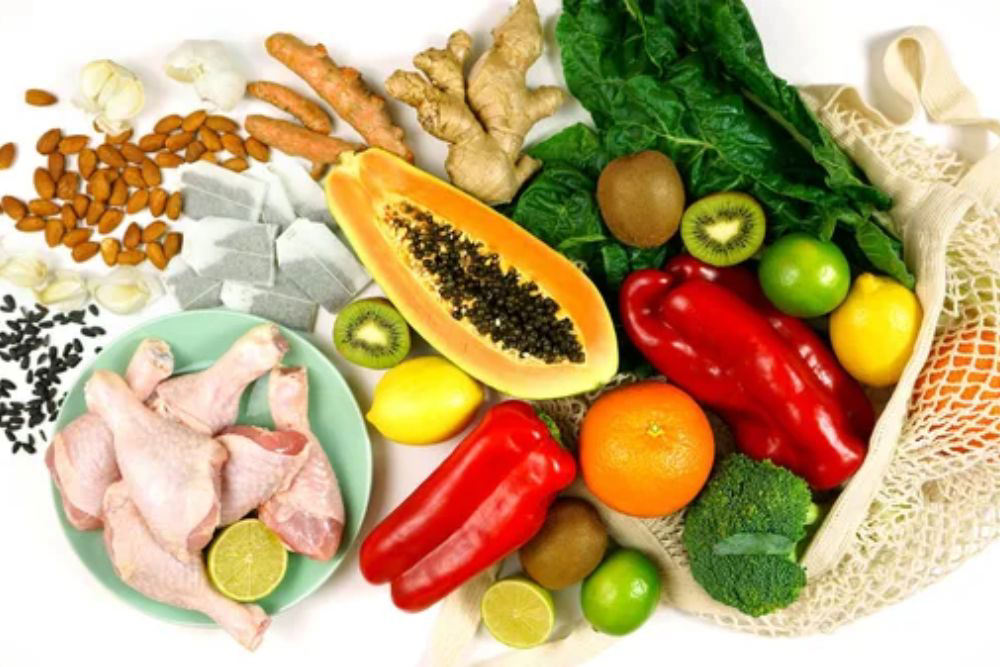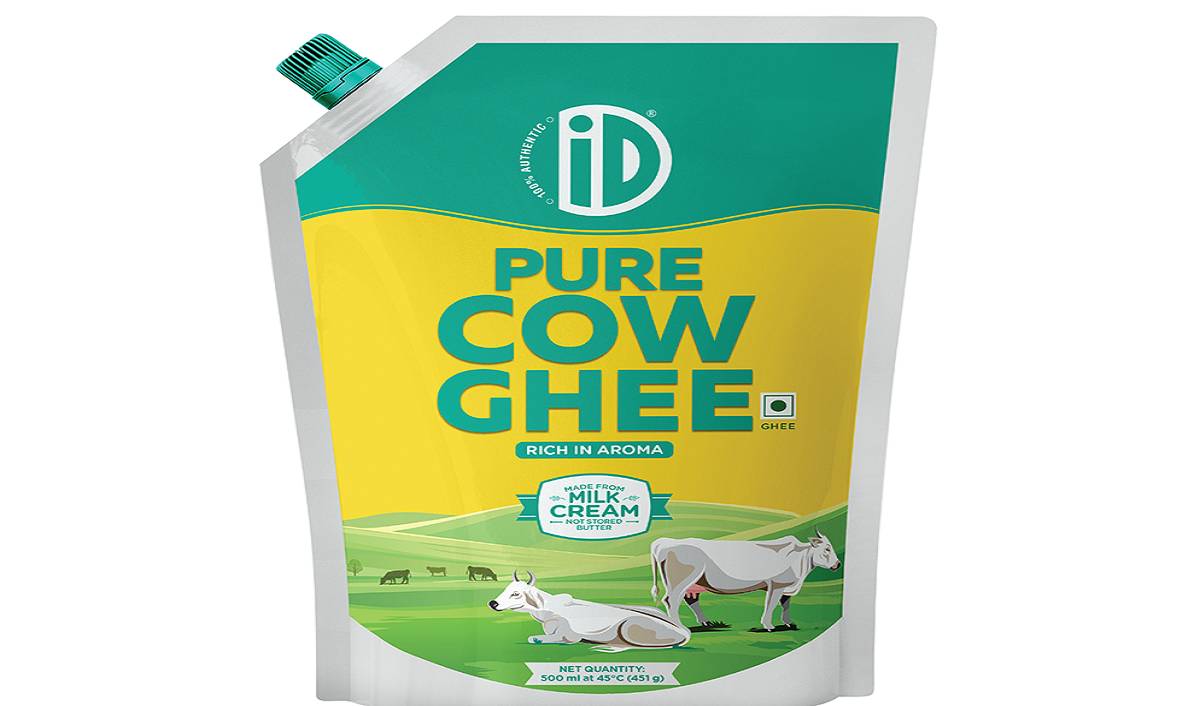Introduction to the importance of gut health
Gut health is more than just a trendy topic; it’s the cornerstone of overall wellness. You might not realize it, but your gut plays a crucial role in how you feel both physically and mentally. It’s often referred to as the “second brain” for good reason—your gut influences everything from digestion to mood.
Imagine feeling lighter, more energetic, and ready to take on the world—all thanks to what you eat. That’s where the concept of nurturing your gut microbiome comes into play. The foods we consume can either support or sabotage our inner ecosystem, impacting our health in profound ways.
In this blog post, we’ll explore why gut health should be top-of-mind for anyone seeking vibrant well-being. We’ll dive into delicious foods that promote a healthy gut microbiome and share some practical tips for making these choices part of your daily routine. Get ready to discover how small changes in your diet can lead to big improvements in how you feel!
The connection between gut health and overall well-being
The gut is often referred to as the body’s second brain. It’s where digestion occurs, but its influence extends far beyond just processing food. A healthy gut plays a crucial role in our mental and emotional well-being.
Research shows that a balanced gut microbiome can affect mood, energy levels, and even cognitive function. The bacteria residing in our intestines communicate with the brain through various pathways, releasing neurotransmitters like serotonin—often called the “happiness hormone.”
An imbalance of gut bacteria can lead to issues such as anxiety or depression. This connection emphasizes how essential it is to prioritize gut health for a fulfilling life.
When we nourish our guts with the right foods, we not only support digestion but also enhance overall vitality and emotional balance. It’s fascinating how what we eat impacts so many facets of our daily lives.
Foods that promote a healthy gut microbiome
Eating a varied diet rich in whole foods is essential for cultivating a thriving gut microbiome. Fiber-rich fruits and vegetables act as fuel, nourishing the beneficial bacteria residing in your intestines. Think leafy greens, berries, bananas, and apples.
Whole grains also play an important role. Foods like oats, quinoa, and brown rice provide complex carbohydrates that support diverse bacterial populations. These grains offer not just fiber but vital nutrients that contribute to digestion.
Fermented foods are another treasure trove for gut health enthusiasts. Yogurt, kefir, sauerkraut, and kimchi introduce live cultures into your system—these good bacteria can help balance your microbiome effectively.
Healthy fats should not be overlooked either. Avocados and olive oil contain compounds that promote anti-inflammatory responses within the gut lining. Embracing these nutritious options can lead to improved digestion and overall vitality.
Probiotics: the good bacteria for your gut
Probiotics are often referred to as the “good bacteria” that play a vital role in maintaining gut health. These live microorganisms can be found in various fermented foods and supplements.
Incorporating probiotics into your diet helps balance the gut microbiome, which is crucial for digestion and nutrient absorption. Some popular sources include yogurt, kefir, sauerkraut, kimchi, and kombucha.
Regular consumption of probiotics may enhance immune function and reduce inflammation within your body. They also support mental well-being by influencing the gut-brain axis.
Choosing diverse probiotic-rich foods not only adds variety to your meals but also boosts the effectiveness of these beneficial bacteria. When selecting products, look for those that contain live active cultures for maximum benefits.
Prebiotics: feeding the good bacteria
Prebiotics are essential for nurturing the good bacteria in your gut. These non-digestible fibers serve as food for probiotics, enabling them to thrive and multiply.
You can find prebiotics in various foods. Think garlic, onions, leeks, and asparagus. These ingredients not only add flavor but also support a healthy microbiome.
Another great source is bananas. They contain resistant starch that acts like a sponge for beneficial bacteria. Whole grains such as oats and barley also pack a powerful punch when it comes to prebiotic content.
Incorporating these foods into your diet can enhance digestion and boost immunity. A well-fed gut flora contributes to better nutrient absorption and overall health.
Experiment with different combinations of these ingredients in your meals—smoothies, salads, or cooked dishes—to keep things exciting while supporting your gut health journey.
Gut-friendly meal ideas and recipes
Start your day with a nourishing breakfast bowl. Combine Greek yogurt, chia seeds, and fresh berries for a delicious start. This mix not only tastes great but also packs a probiotic punch.
For lunch, whip up a vibrant quinoa salad. Toss together cooked quinoa, black beans, avocado, and chopped veggies like bell peppers and cucumbers. Drizzle with olive oil and lemon juice for an extra zest.
When dinner rolls around, consider making stir-fried vegetables paired with brown rice or whole grain noodles. Add tofu or chicken for protein—don’t forget to sprinkle in some garlic and ginger for flavor while boosting gut health too.
Snack smart by munching on raw almonds or carrot sticks dipped in hummus. Both options are easy to prepare and perfect for keeping your gut happy between meals.
Other lifestyle factors that impact gut health
Gut health isn’t solely about what’s on your plate. Lifestyle choices play a significant role, too. Stress is one major factor that can disrupt the gut microbiome balance. High cortisol levels may lead to inflammation and alter digestion.
Sleep quality also matters immensely. Poor sleep or irregular patterns can negatively affect gut bacteria diversity. Aim for consistent, restorative rest each night; it’s vital for your overall well-being.
Physical activity brings additional benefits, stimulating digestion and promoting the growth of beneficial bacteria. Even simple activities like walking can enhance gut function.
Hydration shouldn’t be overlooked either. Drinking enough water supports digestion and nutrient absorption while helping maintain a healthy mucosal lining in the intestines.
Consider how medications impact your gut health, particularly antibiotics which can disrupt microbial balance. Always consult with a healthcare professional before making changes to medication routines.
Conclusion and tips for maintaining a healthy gut long-term
Maintaining a healthy gut is an ongoing journey that requires mindful choices and lifestyle adjustments. To support your gut microbiome, focus on integrating a variety of the best foods for gut health into your daily meals. Incorporate probiotics through fermented foods like yogurt, kefir, and sauerkraut to introduce beneficial bacteria. Pair these with prebiotic-rich options such as garlic, onions, and bananas to help feed those good microbes.
Staying hydrated is equally important; drink plenty of water throughout the day to assist in digestion and nutrient absorption. Regular physical activity can also enhance your gut function—aim for at least 30 minutes most days.
Don’t underestimate the power of stress management either. Practices like yoga, meditation, or simply spending time outdoors can significantly impact how well your body manages stressors that may affect gut health.
Pay attention to how different foods make you feel. Everyone’s digestive system responds uniquely; keeping a food diary might help identify any triggers or intolerances you weren’t aware of before.
By embracing these habits consistently over time, you’ll not only foster optimal gut health but also enjoy its myriad benefits for overall wellness and vitality. Your journey toward balance starts with small steps today that lead to lasting changes tomorrow.














